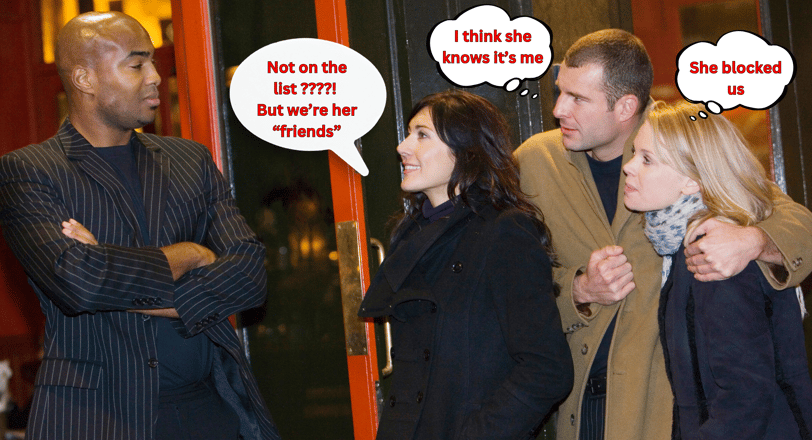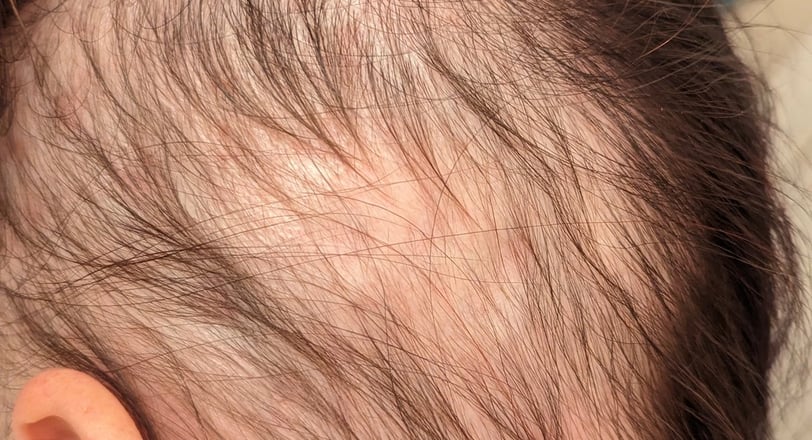Cutting Ties: Choosing Yourself Over Toxic Connections
Healing from a narcissistic relationship is complex, especially when shared friends remain in the picture. This post will resonate with anyone struggling to prioritize their well-being over social expectations or shared histories. I open up about the importance of evaluating friendships, recognizing enablers, and Choosing Yourself Over Toxic Connections.
RELATIONSHIPSTRAUMA & ABUSE
Tiffany
11/9/20245 min read


Just Checking In?
There’s a certain energy about it, isn’t there? That sinking feeling when you see a message from someone still connected to your abusive ex-partner. It’s like a wave of negativity rushing through you, weighing you down.
These are the people who text to “just see how you’re doing,” with a tone that once felt friendly but now carries a heavy, unsettling charge. I know this feeling intimately. At first, it was disorienting. I was processing the end of a toxic relationship, the guilt of putting myself first, and the storm of broken connections left in its wake.
The Reality of the Aftermath
Deciding to leave was just the beginning. What came after was even harder. It was like confronting a room where the carpet hid a mound of secrets I had swept underneath for far too long. The closet doors bulged with excuses, lies, and red flags I ignored. I stared at the mess, paralyzed with self-doubt and questions.
How did I let this happen? Was I too naive to see the signs? Why didn’t I listen to myself when I felt something was off?


This wasn’t just an emotional clean-up; it was a fight for survival. My body bore the signs of the emotional torment—unexplained weight loss, my hair falling out (image above), skin erupting in stress reactions, my immune system shot from constant hypervigilance.
Even after physically leaving the relationship, the mental and emotional chains were still locked tight. My abuser’s influence lingered through the social circles we shared, and every interaction felt like a covert interrogation. It was exhausting.
Navigating the Web of Connections
These weren't random acquaintances reaching out. They were the people who had been at the center of our shared life—the ones who might have danced at our parties, toasted at our dinners, and sat in on inside jokes that now tasted bitter.
Their texts came, seemingly innocent: “Hey, how are you holding up?” It felt intrusive, almost performative. I was torn between replying politely and wanting to scream: “Do you really care, or is this just gossip fodder for my ex?”
I didn’t immediately grasp how embedded these connections were in keeping me tethered to my ex’s world. Friends of the relationship became de facto spies, knowingly or not.
And I started to realize: many people unknowingly support abusive relationships, thinking they’re just being good friends. I get it. They’re reconciling the contradiction between their buddy who was so loving and charming at parties and the reality I shared: that behind closed doors, he was my worst nightmare.
Understanding Dual Realities: The Contradiction Trap
This contradiction was the hardest thing for people to understand—and for me to accept. Our minds crave absolutes; we want to label someone as either good or bad, innocent or guilty.
But narcissistic abuse doesn’t play by those rules. It’s complex.
It exists in a space where two seemingly opposing truths can coexist. My ex could be the fun-loving guy at the bar and, at the same time, the man who gaslighted me until I questioned my sanity. The dissonance leaves people unable to choose sides, leaving victims stranded in the gray area.
I understood why it was hard for others to believe me. I understood why they thought they could fix us. In the beginning, I looked so happy—he and I were a perfect couple. I had testified to that effect, with my initial doting and tales of the good times.
But now my well-being required me to stop waiting for validation and to start protecting myself. It was not about who was “right” in the he-said-she-said narrative; it was about whether the relationship, including those tied to him, was right for me.
I learned to take responsibility for evaluating these connections, knowing it was my job to maintain boundaries that protected my peace. The fear of appearing selfish haunted me at first. Was I being cruel? Would people think I was overreacting?
Cutting Off for Self-Preservation: Why It Was Necessary
At first, blocking people felt extreme, even cruel. It was hard to silence those who hadn't abused me directly. But the reality is, many people unknowingly support abusive relationships. They see themselves as diplomats, matchmakers, or peacemakers, trying to fix things without realizing the consequences.
When I left, people connected to my ex reached out, including my sister, who hadn’t spoken to me in nearly a year. Her sudden interest seemed caring at first. When she messaged, “Hey, it’s been a while, you good?” I replied, I was doing great, also explaining that I’d left Zane.
She replied that she knew. I asked her how she found out. Her evasive response to how she knew sent alarms blaring in my mind. The more we talked, the more it became clear—her main interest was finding out where I was.
She slipped up by accidentally forwarding our on-going text conversation to me that was meant for someone else, which she quickly tried to brush off with a flimsy excuse.
It became obvious that she was acting as an informant, knowingly or not, for my ex.
This pattern of interactions, not just with her but with others too, felt like a covert operation to reveal my location. Everyone who reached out to me after I left all asked that one question, "where are you now?"
If I had given in to these seemingly concerned questions, I could have exposed myself to danger.
These suspicions proved valid when, out of frustration from not knowing my whereabouts, my ex showed up at my workplace. He threatened my colleagues and repeatedly returned until I was forced to get a restraining order.
The court, after seeing my evidence—photos and videos of his aggression—granted it.
Reflecting on this, I realized just how close I came to being put at risk by those who claimed to care. Cutting people off wasn’t just a decision; it was a lifeline. It created the space I needed to protect myself and start anew, away from the web of influence that could have pulled me back.
Making Room for Sustainable Memories
One thing I’ve learned is that cutting people off feels harsh at first. Society teaches us that maintaining connections is a virtue, even if those connections drain us. But I reframed it as making space for something better. The memories tied to those people had a season, and that season was over.
Yes, I might have shared good times with them, but those moments were often propped up by a façade. Letting them go didn’t erase those memories—it allowed me to cherish the lessons while moving forward.
Boundaries are a commitment to yourself. They’re an act of choosing your well-being over nostalgia or the comfort of others. I started to let go of the guilt, knowing that you can’t change the past, but you can create the future you want.
I learned to say, I choose me. And in doing so, I made room for memories that wouldn’t be tangled in pain or manipulation—memories that were mine to build, free from the echo of an abusive relationship.

